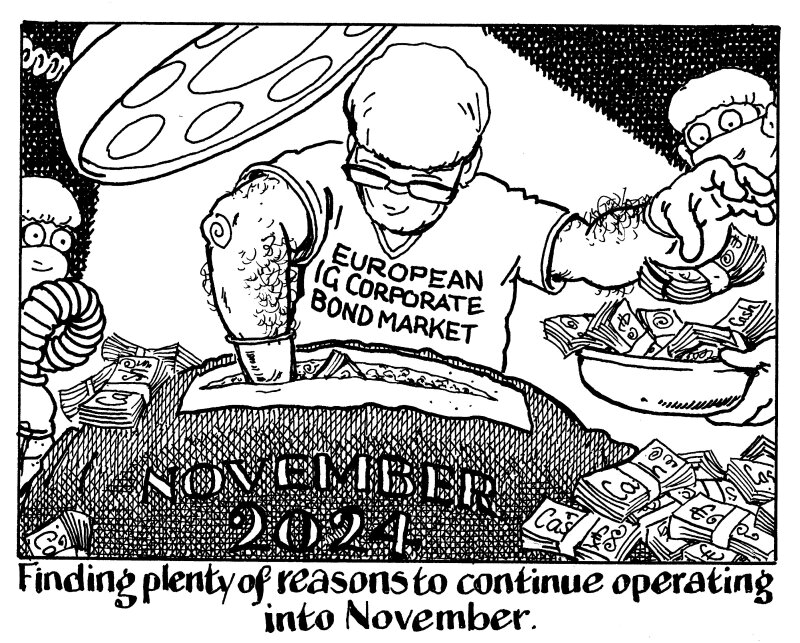
The looming US election has been one of the key factors in the thinking of issuers and investors this year in Europe’s corporate bond market. Conventional thinking has been to get as much funding done as possible before the vote on November 5 in case there is any flare-up in market volatility.
But the last few weeks in the primary bond market suggest a corporate treasurer could wake up on November 6 and be confident in pulling the trigger on a deal.
The US election is the headline act in what has been a veritable festival of polls around the world this year. Sure, there were big names like the UK, the EU and India. There was even a surprise set from France. But everyone will be piling down the front to see who of Kamala Harris or Donald Trump wins the residency at the White House for the next four years.
European high grade corporate issuers have long regarded November as a month to avoid for printing bonds, with major borrowers explicitly telling GlobalCapital that they have sped up 2024 funding programmes to avoid it this year.
But coming into the final stretch, it looks like that worry, while logical and shrewd, was overblown. This week, for example, there was rapturous demand for deals, often for the kind of infrequent borrowers that cannot easily rely on name recognition to guarantee a solid orderbook.
This was clearest in debut borrower Shurgard's deal. The US-owned self storage company. priced its €500m no-grow 10 year trade 40bp tighter than initial guidance, and attracted peak demand of more than €4.5bn.
Last week, Eurogrid — a better known issuer in these parts — romped home with more than €8.5bn of demand for its €1.5bn deal.
Some of this excess demand is down to investors knowing that borrowers have come to the market early, so final quarter deal flow will be sparse.
However, the much more meaty part of the equation is the cash that has flowed relentlessly into high grade corporate bond funds all year — and continues to do so. There have only been a handful of weeks with net outflows all year, according to Bank of America analysis.
At the same time, portfolio managers’ favourite hobby this year seems to be grumbling about how little paper there is available to buy in the secondary market, meaning money has to be spent in the primary market.
There are few technical forces more supportive of a market than cold, hard cash. Even the top card of 2024’s year of political fights will struggle to make much of a dent in it.
